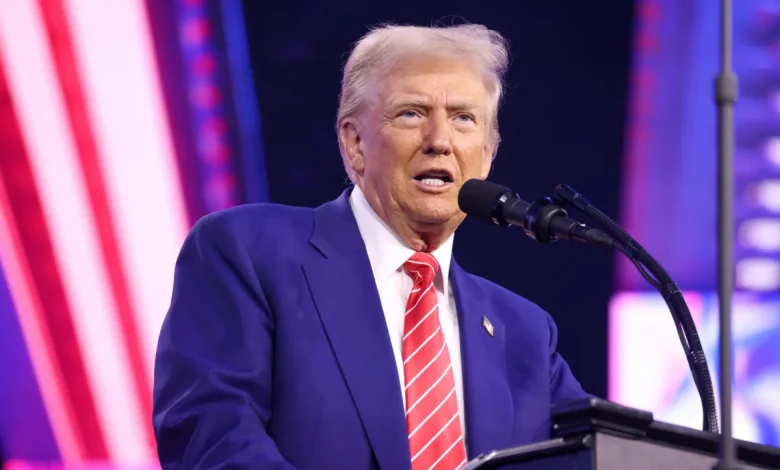U.S. House Passes Trump Tax and Spending Mega-Bill

In a dramatic vote that underscores the deep political divisions on Capitol Hill, the U.S. House of Representatives has narrowly passed a sweeping tax and spending bill championed by former President Donald Trump, marking a key milestone in his bid to reassert influence over the country’s economic agenda ahead of the 2024 presidential election.
The bill cleared the House by a razor-thin 215 to 214 margin late Wednesday, revealing fractures not just between parties but within the GOP itself. It now heads to the Senate, where it faces an uphill battle amid calls from both moderate Republicans and Democrats for substantial revisions.
Touted by Trump as a “big, beautiful bill,” the legislation proposes an extension of the 2017 Trump-era tax cuts, a controversial elimination of federal taxes on tipped income, and major increases in defense and border security spending — a policy package that Republican leaders describe as fiscally bold and strategically patriotic.
“This is once-in-a-generation legislation,” said House Speaker Mike Johnson, framing the bill as a cornerstone of the GOP’s economic vision. “It reflects our commitment to American families, workers, and national security.”
But critics, especially from the Democratic side of the aisle, have lambasted the proposal as a massive giveaway to the wealthy that could worsen income inequality and inflate the national debt.
According to projections by the nonpartisan Congressional Budget Office (CBO), the bill could add as much as $2.3 trillion to the federal deficit over the next decade — raising alarms among fiscal conservatives and deficit hawks alike.
“This is reckless,” said House Minority Leader Hakeem Jeffries. “It’s a windfall for billionaires and a burden for working families who will see vital public services starved of funding.”
Extension of 2017 Tax Cuts: A core Trump-era policy that primarily benefits corporations and high earners.
Abolition of Federal Taxes on Tipped Wages: A controversial move hailed by the service industry but criticized by economists as regressive.
Massive Boost in Defense Spending: Aimed at modernizing the military and enhancing border infrastructure.
Cuts to Non-Defense Discretionary Programs: Including climate funding, education grants, and certain social safety nets.
The House passage is being seen as both a political and symbolic victory for Trump, who is seeking to consolidate Republican support as he campaigns for a return to the White House. Analysts compare the bill’s ambitions to Reagan-era fiscal reforms and George W. Bush’s 2001 tax cuts, though critics argue it lacks the bipartisan backing those efforts once enjoyed.
Internationally, the move comes as countries like the UK and Germany are grappling with balancing austerity against inflation relief, while China ramps up spending on defense and infrastructure. In this context, Trump’s bill reflects a broader ideological shift among global conservatives toward “growth through debt” strategies.
The bill’s fate now rests in the Senate, where moderate Republicans and Democratic lawmakers are already lining up proposed amendments. Key sticking points include the tipped income provision, deficit projections, and the scope of military spending.
“There’s a lot we still need to fix,” said Sen. Susan Collins (R-Maine). “We need a bill that’s not only bold but balanced.”
With a divided Congress and a charged election season on the horizon, the bill’s passage through the House may be the easiest part of its journey.





